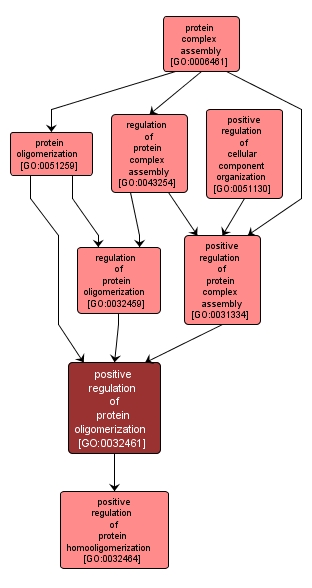GO TERM SUMMARY
|
| Name: |
positive regulation of protein oligomerization |
| Acc: |
GO:0032461 |
| Aspect: |
Biological Process |
| Desc: |
Any process that activates or increases the frequency, rate or extent of protein oligomerization. |
Synonyms:
- up-regulation of protein oligomerization
- upregulation of protein oligomerization
- up regulation of protein oligomerization
- induction of protein oligomerization
- stimulation of protein oligomerization
- activation of protein oligomerization
|
|

|
INTERACTIVE GO GRAPH
|














